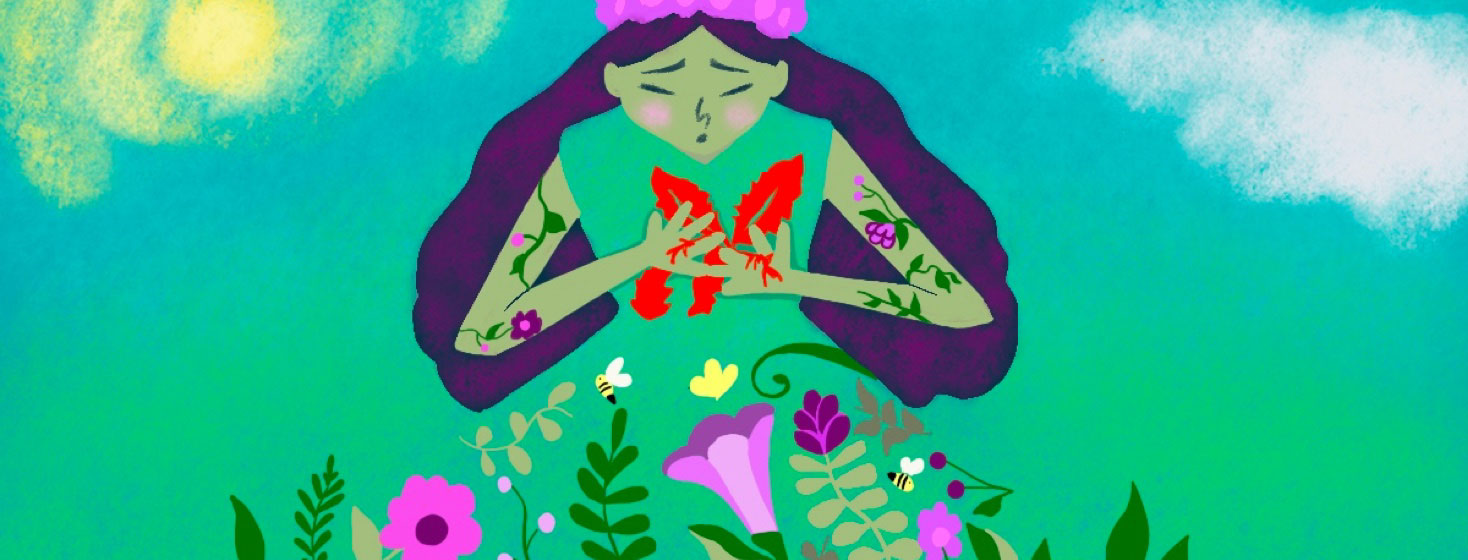Cancer, Conversation, and Language
Victim. Sufferer. Fight. Fighter. Brave. Beaten. All words associated with cancer. My question is - do we have this all wrong?
It is pretty much impossible to talk about cancer without referring to the words above, or the language being doom and gloom. But what language could we replace it with?
The end?
Historically cancer was seen as the end. And, people of a certain era, I'm including myself here, would know that when you heard the C-word the ending was not going to be nice. It was just a matter of time. Sometimes a person could last for a while with cancer but we knew that it would get them in the end.
I remember meeting people with cancer when I was younger and really struggled to approach them. I mean, how can you talk to someone who knows they don't have long to live? I always found that difficult.
I felt awkward going through the small talk, "Weather looks good, was a good result for the Albion the weekend." It just didn't seem right. Opposite to that, I didn't want to go all, "Oh my life I'm so sorry, it must be so difficult what you're going through." That seems to be rubbing salt in an already infected wound.
The cancer language
The terms we use are so ingrained into our language that we hardly notice them and just take them for what they are. I was reading an article the other day 'so and so' has died following a long battle against cancer. His family was at his side 'he fought bravely'.
See what I mean? It seems natural to talk about cancer in these terms. People have said to me, "You must be brave, you're fighting this so well!"
And that's where some of the problems began for me.
Talking about my bladder cancer
Do I feel brave? No. Am I a victim, am I suffering, and am I a fighter? None of these apply to me or at least I don't think they do. I'm certainly not a fighter (far from it), nor do I think I'm suffering. In pain? At times it's been pretty unbearable, but others have to go through far worse than me. I don't feel special at all.
I remember coming out of City Hospital, Birmingham in the UK after diagnosis not feeling any different, I went in OK and came out with cancer. How did that happen? And that's why I don't see myself as a fighter, sufferer, victim.
If anything, it has allowed me to spread awareness of bladder cancer and also to try to break down the stigmatization that surrounds cancer.
I felt OK, didn't feel I had cancer. Didn't have any pain, I looked in the mirror and saw the same me from yesterday. So, is it this initial feeling of OK that means we have to use the language that we do? To call people to action.
After all, I had no inclination that I had cancer, so could you say with certainty that you don't either.
Talking about cancer generally
The words we use now are they there to provoke shock and sympathy? It would be interesting to see what impact these campaigns have. I've mentioned there was an admission that cancer was pretty much as brutal a disease you could get and it may be time to accept it and its outcome. So that may be why we use the words we do. We see cancer advertisements daily on the TV, in a magazine, on social media, but we change the channel, turn the page and scroll down.
Perhaps it's time to use a different approach. They do say that 1 in 2 of us will get cancer, but we are always attracted to being the one that doesn't get it.
I know I was. It won't happen to me, I'm safe. All this despite us knowing in the back of our minds, that cancer is pretty fatal. "You do know there's no cure for cancer, don't you?" my nurse rhetorically said to me in one of my more overconfident episodes.
Luck of the draw
So maybe we need to be a little more practical in our approach. Cancer does kill but doesn't kill everyone that is diagnosed. It is very much luck of the draw. The ‘why me?’ question was answered by my nurse as it's all down to genetics and then went through my history, lifestyle, and so on. Things like that have really helped me.
I understand how cancer is, and why I have had it. I haven't beaten it, for it isn't a fight nor am I a fighter, and I don't suffer nor do I think of myself as a victim. I think we need to lift our heads and say "Yes, I have cancer," or had cancer but I'm working hard to make sure it does not return. Though there are no guarantees.
Ridding the weeds
There it is, sorry I've rambled a bit, but I think I'm happy with that description. My nurse, for she has a lot for me to be thankful for, described it like this:
"The body is a garden and cancer is a weed. We work hard to get rid of the weeds to make sure that the garden is weed-free. But, as in any weed it isn't just what you can see, it's the roots, the deep filaments that have secured themselves in the soil. That's how far we have to go. And as any gardener will tell you, once you get rid of the weed in one area, for no apparent reason it will surface somewhere else, and random, in your garden. So, the process starts again getting rid of the weed."
And that's what I'm trying to do, keep my body weed-free. Tell us about your experience in the comments below, or share your story with the community.

Join the conversation